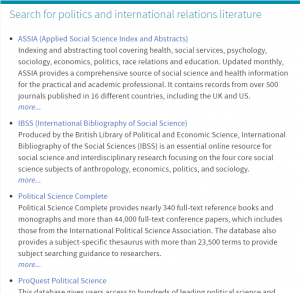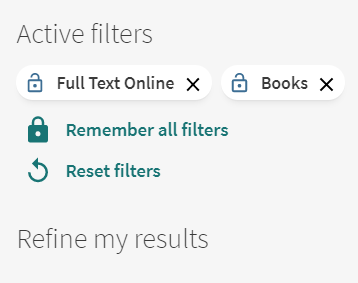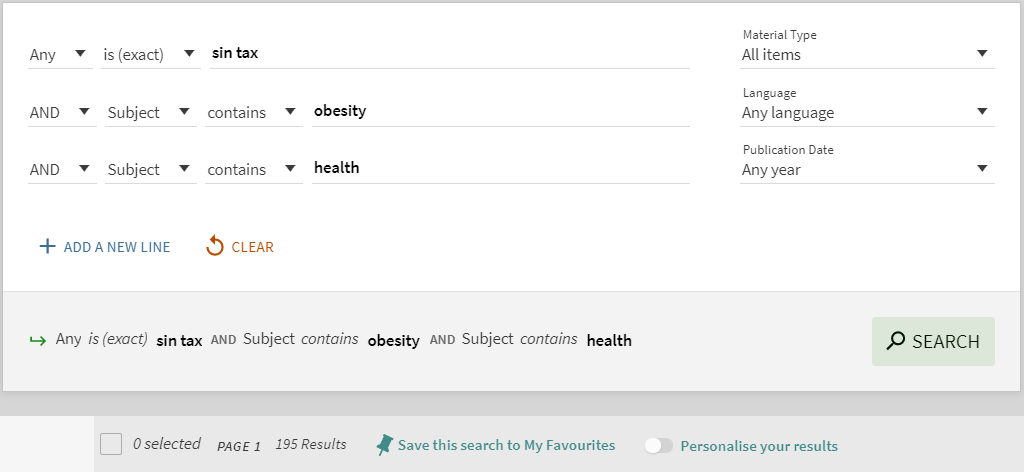With many of you currently not in Edinburgh and access to our Library’s print collections severely restricted, being able to access books, journals and other materials online has become even more important.
Knowing how to find and access the e-books and e-journals (and more) available to you at the Library is often where people first go wrong. While Google and Google Scholar are good search tools they are not going to show you what the Library has access to and they often put barriers in your way for accessing material.
DiscoverEd should be your starting point
DiscoverEd (http://discovered.ed.ac.uk) is the main place to search for and access online material (and print) available to you at the Library. It tells you what e-books, e-journals, e-journal articles, etc., you have access to and provides links to access them. These links are embedded to tell the resource that you are from University of Edinburgh so access in most cases is direct with your University username and password (and you don’t have to enter this again if you are already signed in).
So some hints and tips and things to know when using DiscoverEd.
Sign In
Too many search results?
Don’t ignore information that is there to help
Broadening your search in DiscoverEd
Build a more complex search (or a more specific search)
Going beyond DiscoverEd
What access is there to print items in Library collections or if the Library doesn’t have the item at all?
Sign In
Sign in to DiscoverEd every time you use it. This ensures:
- you are seeing a full set of search results
- request options are appearing and active
- access to most online resources is direct
- you can save your results and/or your searches
Too many search results?
DiscoverEd is searching many, many things so one search can bring back thousands, if not millions, of search results which can be overwhelming or confusing.
So if you’re just looking for a book then you can select “Books” from the drop-down menu under the search box.
 Or if you forget to limit to just “Books” before you’ve done your search, you can use the left-hand ‘Refine my results’ menu to limit your search results to just books under the Resource Type option (click Show More if “Books” is not appearing).
Or if you forget to limit to just “Books” before you’ve done your search, you can use the left-hand ‘Refine my results’ menu to limit your search results to just books under the Resource Type option (click Show More if “Books” is not appearing).
 And with the current situation you may want to limit to your search to just e-books. So under Show Only make sure you choose “Full Text Online”.
And with the current situation you may want to limit to your search to just e-books. So under Show Only make sure you choose “Full Text Online”.
Why not take a look at the other drop-down menu options and ‘Refine my results’ options to see other ways you can limit your search? Any filters you choose from the ‘Refine my results’ options appear as ‘Active filters’ at the top of the left-hand menu, you can keep these filters in place for further searches during that session by clicking on the individual padlock icons or the ‘Remember all filters” option.
Don’t ignore information that is there to help
Are you trying to access e-journals or e-journal articles through DiscoverEd? Make sure you check the years that are available through each e-journal platform/publisher under ‘View Online’. If the Library’s access doesn’t cover the year the article you require is from then you will not get access.
While the majority of online resources can simply be accessed by clicking on the link from DiscoverEd, some resources will require extra steps for access to work (particularly if you are working off-campus, which most people are). If there are “Authentication Notes” for an e-book, e-journal article, etc., under ‘View Online’ make sure you read these. They will detail what you must do to get access to the resource e.g. you may have to click a “login” link when you get to the site, you may have to be connected to VPN for access to work off-campus.
It’s also this area that we’ll add notes if we are aware there is an access issue with the particular e-journal or e-book you are trying to access. So do read this information if present.
Broadening your search in DiscoverEd
While most people will start using DiscoverEd to find specific items from their course reading lists, you can also use it when you want or need to start doing your own research. But the items from your reading list can allow you start going beyond your reading list in DiscoverEd.
Here are just a couple of examples of how you can do this:
- All records in DiscoverEd have full bibliographic details listed and most of these will include Subject Headings. Subject Headings are essentially tags assigned to each item in DiscoverEd by human indexers. They pinpoint the topics of each paper. In DiscoverEd you can click on any of these subjects and it will do a search that brings back everything in DiscoverEd that has been indexed under that specific subject heading. This can really help start to broaden out your search.

- You’ll spot that some of the search results you get in DiscoverEd have orange arrows next to them and you may have wondered what these are? These allow you to see either the references that have been cited by that particular work (downward pointing arrow) or some of the subsequent articles or other items that have cited that particular work since it has been published (upward pointing arrow). This can be a quick way of seeing other material that has been written around your topic or subject.

Build a more complex search (or a more specific search)
If you want to do more advanced searching in DiscoverEd then the Advanced Search section allows you to build more complex searches and more specific searches. You can use it to search for your keywords in specific fields e.g. Title, Subject, etc., you can use Boolean operators (AND, OR, NOT) to combine your search terms together, you can tell it to look for a specific phrase (is(exact)), you can limit to material published within certain time periods, and more.
Going beyond DiscoverEd
DiscoverEd can take you so far, databases can take you further. Databases allow you to search millions of references or records at one time using sophisticated search functionality and can take you beyond what you have access to directly at the Library.
 There are subject specific databases that allow you search peer-reviewed and academic articles, book chapters, reviews, theses, conference reports and proceeings, etc., relevant to your subject area. There are databases that will allow you to search and access full text newspaper and magazine articles (both current and archive content). There are databases that will allow you to search official documents, legal documents, government papers, statistics and data sets, images, audio-visual material, and more.
There are subject specific databases that allow you search peer-reviewed and academic articles, book chapters, reviews, theses, conference reports and proceeings, etc., relevant to your subject area. There are databases that will allow you to search and access full text newspaper and magazine articles (both current and archive content). There are databases that will allow you to search official documents, legal documents, government papers, statistics and data sets, images, audio-visual material, and more.
To find and access databases relevant for your subject area or research needs check the Subject Guides.
And if you’re going to use Google Scholar, make sure you set it up to connect to our online collections (primarily e-journals and e-journal articles). See Adding full-text links on Google Scholar.
What access is there to print items in Library collections or if the Library doesn’t have the item at all?
There will be times when the Library doesn’t have access to the book or journal article you are looking for or we may have it but only in print. While the pandemic has limited what we can do there are still some options available to you to help you try and get access this material. Take a look at Using the Library remotely – accessing material you need for full information on options available.
For up to date information about Library opening hours, services, resources and support see our Library Services Update 2020-21.
If you want to learn more digital skills and information literacy skills to ensure you’re getting the best out of the Library why not take a look at LibSmart.
Or you can book onto our Library Bitesize sessions, half hour sessions that cover a range of different library resources, services and support. Search MyEd Events for Library Bitesize to see courses currently available to book onto.
If you’re doing your dissertation or final year project or will be doing it soon, you may want to register for some of our Dissertation Festival sessions from 8th – 19th March 2021.
And remember you can contact your SPS Librarians (SPS.Librarian@ed.ac.uk) directly if you’re looking for more guidance or help with library resources or services. Or if you’re reading this and you’re not a student in SPS, contact the relevant Academic Support Librarian for your subject area.
Caroline Stirling – Academic Support Librarian for School of Social and Political Science (SPS)








Pingback: Using the Library remotely – accessing material you need | SPS Librarian